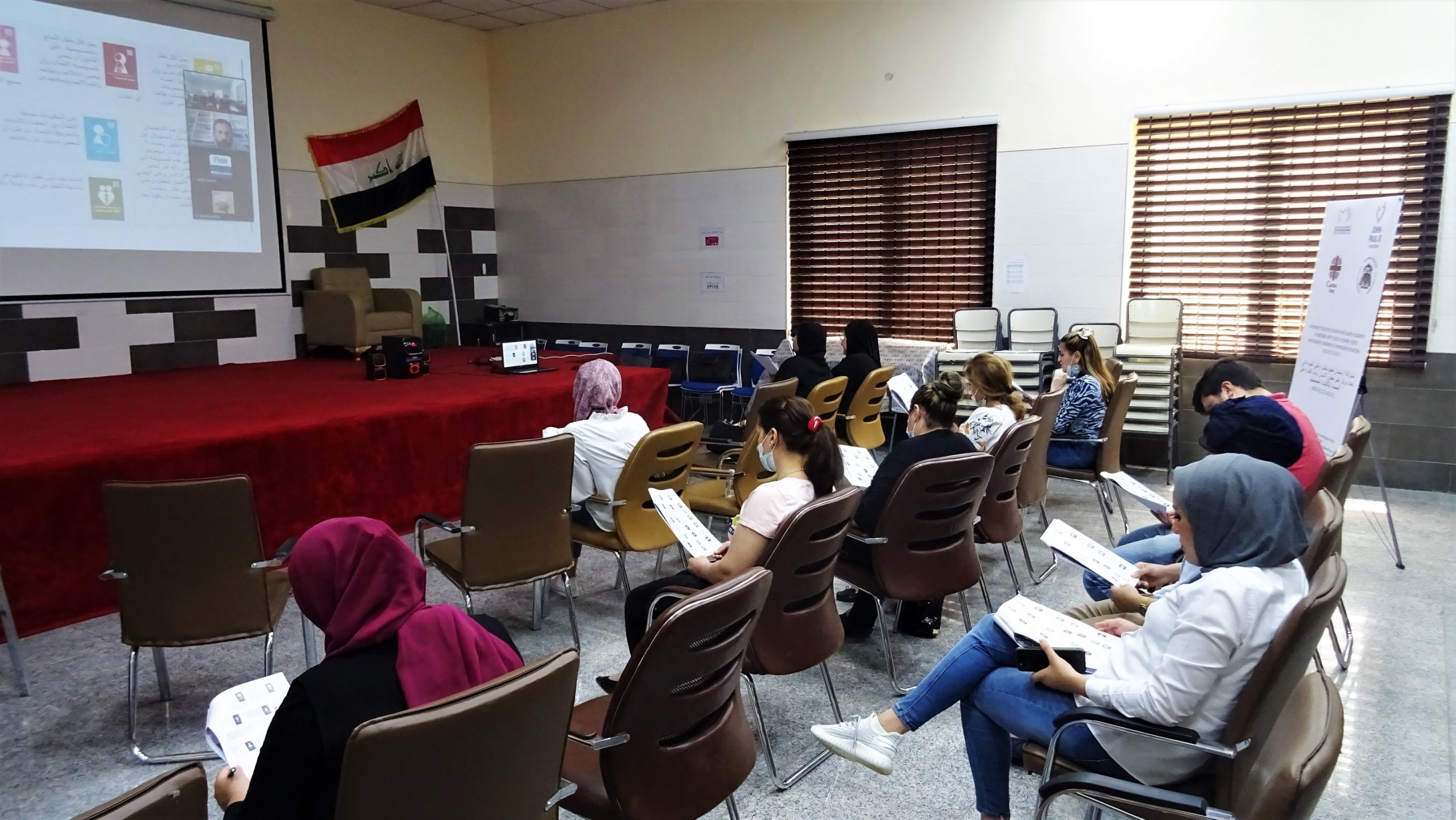
Introducing human rights in Baghdad schools.
"Freedom consists not in doing what we like, but in having the right to do what we must."
St. John Paul II
Iraq during the past decades has not experienced easy times: from the authoritarian regime of Saddam Hussein and the bloody war with neighboring Iran, to the more recent period when the Islamic State dominated large parts of Iraqi territory from 2014 to 2017, perpetrating crimes against humanity and destroying the rich cultural heritage present, Iraqis have had no peace. Rights and freedoms have often been suppressed and remained a mirage for the majority of Iraqis, especially the most vulnerable such as children, women, the disabled, and members of ethnic-religious minorities. Recall that Iraq has always been home to a coexistence of various ethnic groups and religions: Arabs (of Shiite and Sunni Muslim faiths), Kurds, Turkmen, also Chaldeans, Syriacs, Assyrians and Armenians (of Christian faith), Yazidis, Mandeans and other minorities.
The John Paul II Foundation is present in Iraq, particularly in the capital Baghdad, carrying out together with local partners (Caritas Iraq and Latin Community) a two-year development project, financed by AICS (Italian Agency for Development Cooperation), which is focused on the protection of the rights of persecuted minorities, with particular focus on the Christian minority. The multiple activities include, among others, psychological support actions for women victims of conflict and gender-based violence, renovation of school buildings and specific training to teachers at St. Joseph School, part of the Latin diocese.
A training focusing on the innovative goal of incorporating human rights into elementary school planning has been held in recent weeks, led by a lecturer from the European Institute of Florence. Because of restrictions due to the still ongoing pandemic situation, Dr. Georges Fahmi conducted the training remotely.
The main objective of this activity is to improve teachers' knowledge in the field of human rights through the transfer of modern teaching techniques, communication skills and specific methodological tools, as well as learning how to convey the concepts of human rights to young students also through artistic and theatrical work.
Each session of the training was divided into 2 parts. The first, more theoretical, took the form of in an academic presentation, while the second, more interactive, consisted of the screening of a documentary on the same topic followed by a discussion or exercises involving the teachers' group with role-plays or analysis of concrete examples, with the aim of enabling them to reflect on the ideas presented during the academic part
Dr. Georges Fahmi began this training by offering a detailed background on the culture and concepts of human rights and how they have developed over time, going on to deal in more detail with some specific topics such as "the 1948 Declaration of Human Rights: historical perspective and general framework," " The 1989 United Nations Convention on the Rights of the Child: the development of children's rights," or "the concept of citizenship: among migrants, refugees and asylum seekers."
One of the main parts of the training was on minority rights; after the first theoretical part, we moved on to discuss practical experiences in managing diversity and the role of educational institutions in building peace and tolerance, including civil society initiatives, especially with focus on Iraq, Lebanon and Egypt.
Other topic covered gender rights and also focused on how to incorporate Human Rights into artistic activities such as theatrical productions to be carried out together with students.
In addition to almost all of the teachers from St. Joseph School, a number of representatives from the Iraqi Ministry of Education also participated in the training. The participants showed great interest in the topics covered and were active during class hours, so that the entire training was fruitful, but also enjoyable.
Peter Scartezzini,
